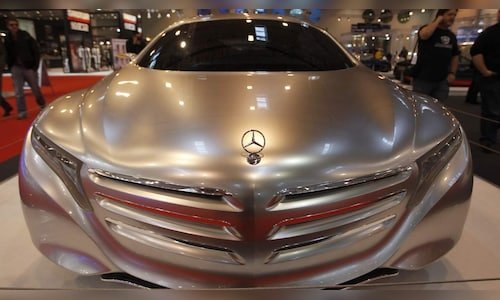Last week, India and the UK sealed a landmark FTA that will lower tariffs on 99% of Indian exports and would make it easier for British firms to export whisky, cars, and other products to India, besides boosting the overall trade basket.
The aim is to double two-way commerce by 2030 from the present USD 60 billion India has included adequate safeguards in the agreement to protect its sensitive sectors and in the automobile segment, the import duty will be reduced over 10-15 years.
The duty concession on imports of petrol and diesel engine vehicles from the UK is limited to a pre-defined quota.
“Fundamentally, we have always advocated free trade as a multinational company, because we feel that free trade helps in better growth… So I think for us, definitely it’s a real welcome move, because it helps,” Mercedes-Benz India MD and CEO Santosh Iyer told PTI.
He noted that there is an expectation of price cuts for cars due to the India-UK pact and also because of the under-discussion India-EU FTA.
“Around 95% of the cars we (industry) sell in India are all CKDs. Which means hardly 15%-16% duty even today. So to expect a huge price correction, I don’t think it would happen even with an FTA,” Iyer said.
The second critical factor is the quota-based system for imported cars, he added.
BMW Group India President and CEO Vikram Pawah said the automaker supports free market access and reduction of trade barriers as it’s a win-win situation for overall economic growth and benefits the consumers.
“India-UK FTA seems to be a landmark deal covering various aspects of mutual trade in goods, services, and mobility and will contribute to the greater vision of Viksit Bharat,” he added.
Pahwa, however, noted that the impact on the Indian luxury segment will become clearer once there is more information regarding the finer details.
“At the same time, BMW Group India has very strong local production and localisation in the India market and remains committed towards that,” he stated.
Meanwhile, Mercedes-Benz India on Friday said it will hike ex-showroom prices of its models, ranging between ₹90,000 and ₹12.2 lakh in two stages this year, in order to partially offset the impact of significant forex fluctuations.
Also Read: Did you know these five countries with large tourist footfalls do not have airports?
